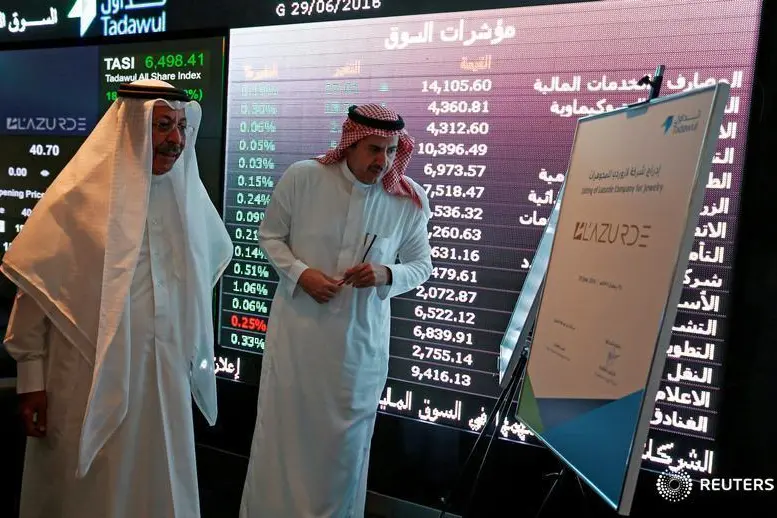PHOTO
- Oil prices rise on tightening supplies
- Asian shares rebound on trade deal hopes
- Saudi and Egypt’s indices rose on Tuesday, lifted by banks
- Dollar weakens, gold prices steady
Oil prices
Oil prices surged in early trading on Wednesday on tightening supplies.
The Organization of the Petroleum Exporting Countries (OPEC) issued on in January a list of oil production cuts by its members and other major producers for six months starting on January 1, to boost confidence in its oil supply reduction pact.
OPEC said on Tuesday that it had cut its output by almost 800,000 bpd in January to 30.81 million bpd.
Oil prices have also been boosted by lower supply from Venezuela, as the United States introduced petroleum export sanctions against state-owned Venezuelan energy firm PDVSA.
U.S. West Texas Intermediate (WTI) crude oil futures were at $53.70 per barrel at 0344 GMT, up 60 cents, or 1.1 percent, from their last close.
International Brent crude futures were up 1.1 percent, or 69 cents, at $63.11 per barrel.
Jeffrey Halley, senior market analyst at futures brokerage OANDA in Singapore, told Reuters that oil prices were boosted after “Saudi Arabia announced it was cutting daily production and exports by a further 500,000 barrels per day (bpd) on top of its agreed OPEC quota cut”.
Global markets
Asian shares rose on hopes over a trade deal between the U.S. and China.
MSCI’s broadest index of Asia-Pacific shares outside Japan rose as much as 0.5 percent to hit its highest level since early October.
“We are currently seeing negative sentiment which had built up over trade concerns and U.S. fiscal issues being unwound,” Soichiro Monji, senior economist at Daiwa SB Investments in Tokyo, told Reuters.
“For risk assets to move purely on optimism, the U.S.-China trade row will need to see some kind of a closure in March. A more permanent solution to avoid a U.S. government shutdown is also necessary. It has to be remembered that we are not there yet.”
Middle East markets
Saudi Arabia’s index rose 0.9 percent on Tuesday with Al Rajhi Bank rising 1.8 percent and Banque Saudi Fransi gaining 2.9 percent.
Egypt's blue-chip index EGX30 rose 1 percent to touch its highest since September 2018, with Commercial International Bank gaining 1.3 percent.
Dubai’s index dropped 0.5 percent with GFH Financial Group dropping 9.8 percent in active trade after the company reported a fourth-quarter net profit attributable to shareholders of $10.6 million, down from $17 million a year earlier.
The Abu Dhabi index fell 0.4 percent with Aldar Properties shedding 3.4 percent and Union National Bank slipping 0.8 percent.
The Qatari stock exchange was closed for a public holiday.
Kuwait’s premier market index rose 0.9 percent, Oman’s index fell 0.4 percent and Bahrain’s index dropped 0.7 percent.
Currencies
The dollar retreated as investors dumped safe havens to invest in equities on Wednesday.
The dollar index, which measures the greenback against a basket of six major currencies, was marginally lower at 96.65, having lost 0.35 percent on Tuesday.
Precious metals
Gold prices steadied on a weakening dollar.
Spot gold was steady at $1,311 per ounce, as of 0115 GMT.
U.S. gold futures were mostly unchanged at $1,314.20 per ounce.
(Reporting by Gerard Aoun; Editing by Mily Chakrabarty)
(gerard.aoun@refinitiv.com)
Our Standards: The Thomson Reuters Trust Principles
Disclaimer: This article is provided for informational purposes only. The content does not provide tax, legal or investment advice or opinion regarding the suitability, value or profitability of any particular security, portfolio or investment strategy. Read our full disclaimer policy here.
© ZAWYA 2019





















